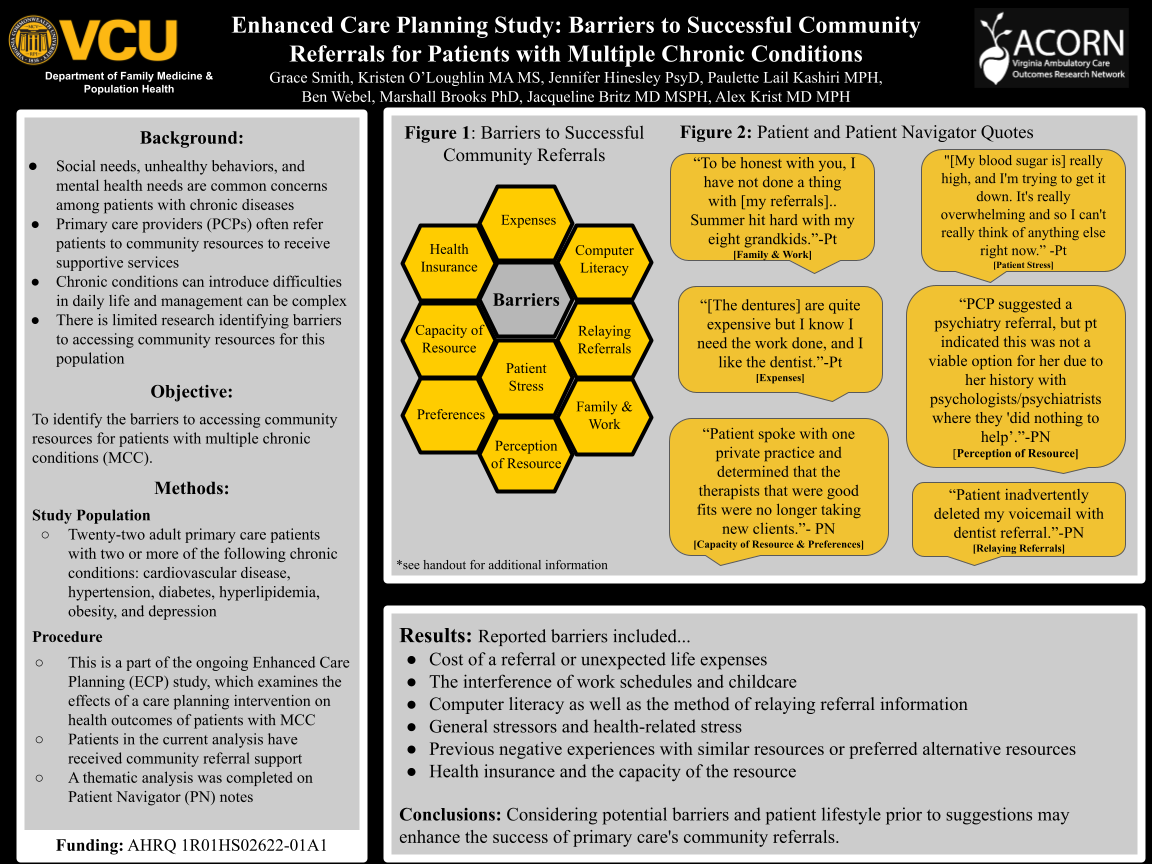SRFP034: Enhanced Care Planning Study: Barriers to Successful Community Referrals for Patients with Multiple Chronic Conditions
Grace Smith; Kristen O'Loughlin, MA, MS; Jacqueline Britz, MD, MSc; Jennifer Hinesley, PsyD; Alex Krist, MD, MPH; Benjamin Webel, BA; Paulette Lail Kashiri, MPH; Marshall Brooks, PhD

Jack Westfall
jwestfall@aafp.org 11/21/2021Terrific poster and presentation. Thanks for your work.